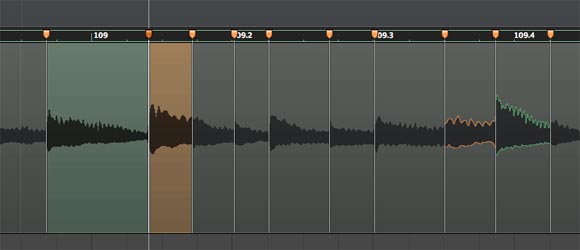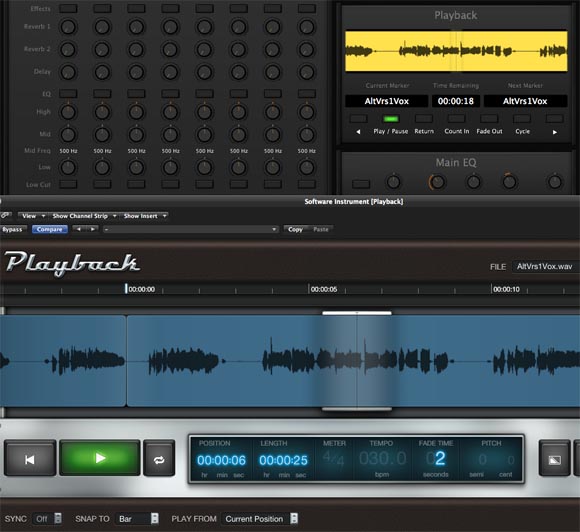
Logic has been a big box of sound toys for some time, but I think what decides whether you really build a working relationship with software like Logic is whether you like editing in it. And that makes Logic Studio 9 worth a new look – and a must-upgrade for fans of the tool. Its combination of subtle tweaks to the editing interface, the ability to edit inside takes, the incredible Flex Time for squishing around audio like Play-Doh, and easy conversion to sampler tracks makes it really fun to edit audio in Logic. You can read the full, detailed review I wrote for Macworld:
Logic Studio: Music workstation suite adds flexible audio, improved editing and live performance, simulated amps and effects [Macworld.com]

The amps and such are fun, but to me the other banner feature in Logic 9 is the vastly improved MainStage, which adds backing tracks, ReWire hosting, and other features that could make it more powerful for live performance. Apparently MainStage has crept into some big-name live shows; I’m going to work on getting more reports from the field. (Meanwhile, I’m trying to figure out how I can rework my own live set so it requires less software, but that’s me.)
Oh, and one little improvement I didn’t fit in the review: there are some amazing special effect convolution impulses Apple threw in with Space Designer, which should give you more fodder for sound design experimentation.
The record industry may be dying, the planetary economy failing, and music technology elusively complex to most average musicians, yet competition in the DAW space just continues to heat up. I find it amusing that some claim Apple’s aggressive pricing is only possible because they sell hardware. I’d buy that, except for some of Apple’s own competitors. Digidesign will add a pretty powerful version of Pro Tools to a hardware bundle. Cakewalk’s SONAR, once a little more bare-bones in the extras department than Logic, now offers a lot of the same sorts of goodies to Windows users in its own (underrated, I think) DAW. And Reaper is a powerful, cross-platform option that costs just US$60, even for most commercial work (now that they’ve made the individual license more open). In fact, various tools are so good that I think it’s really hard to give people advice. Personal taste is more likely to dictate which you prefer, because the ineffable feeling of using these tools – as similar as they may look on paper – is very different. If I ever work out a good way to describe that in words – which does happen to be my job, whether I’m up to it or not – I’ll let you know.
Any tool you’re using is a tool that matters. And I know we have a number of readers using Logic. Later this week, I’m planning a Logic Q&A to fit some of the technical revelations that didn’t fit in the review, so feel free to ask more questions or comment however you like on the Macworld review.